Related Tags
The Big Review: Walrus Audio Fundamental Drive, Fuzz, Delay & Phaser – redefining entry-level pedals
Walrus’ new budget-focused line promises boutique tone and build quality at prices that more of us can afford – too good to be true?
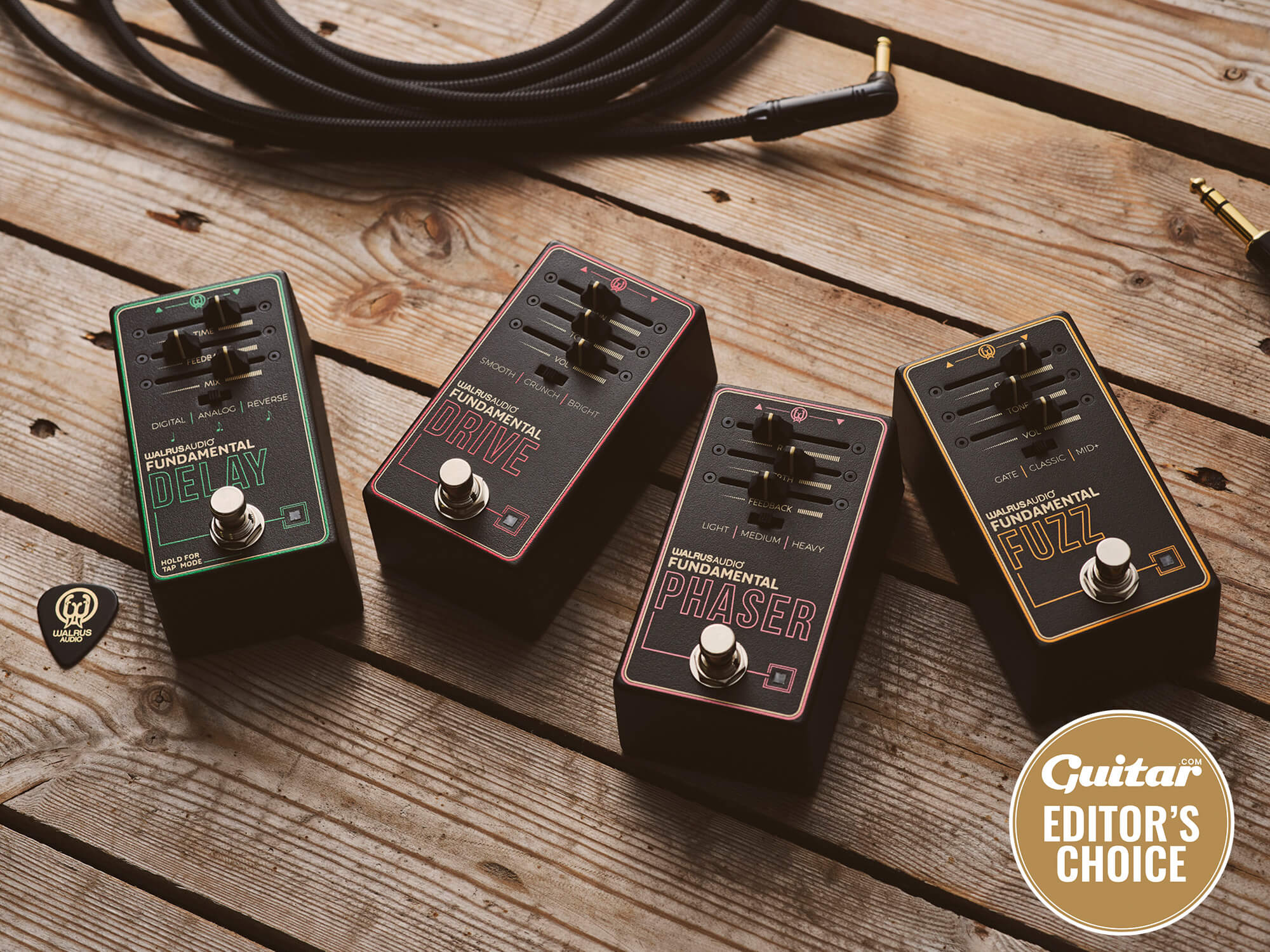
Walrus Audio Fundamental Delay, Drive, Phaser and Fuzz. Image: Adam Gasson
Review Overview
Our rating
9
Our verdict
You had to feel for the good folks at Walrus Audio. Of all the ways for your brand new line of more affordable pedals to leak into the world a week or so before you had planned, a retailer accidentally shipping a pedalboard loaded with the new units to an unsuspecting customer who thought he had just ordered a regular Pedaltrain Metro… it has to be one of the weirdest and most unfortunate.
- READ MORE: Walrus Audio confirms leaked pedal range
Still, as one of the most innovative and yet chill brands in the pedal world, main man Colt Westbrook and his team leaned into the chaos and quickly got ahead of it – wowing the world with the sheer scale of the Fundamental series. To borrow a Mark Corrigan-ism, eight pedals, Colt? Eight? That’s insane.
In truth this isn’t the same time that Walrus has wowed the guitar world with the scale of the boutique outfit’s ambition – we were similarly dumbfounded when Jason Stulce talked me through the high-end DSP magic that he’d managed to squeeze into the brand’s new Mako series stompbox.
In short, when Walrus has a track record that shows they don’t really let something out into the world unless it’s really good, and so expectations are very high that the Fundamental range will keep up that track record – even with the scarcely believable ‘starting at $99 bucks’ price point.
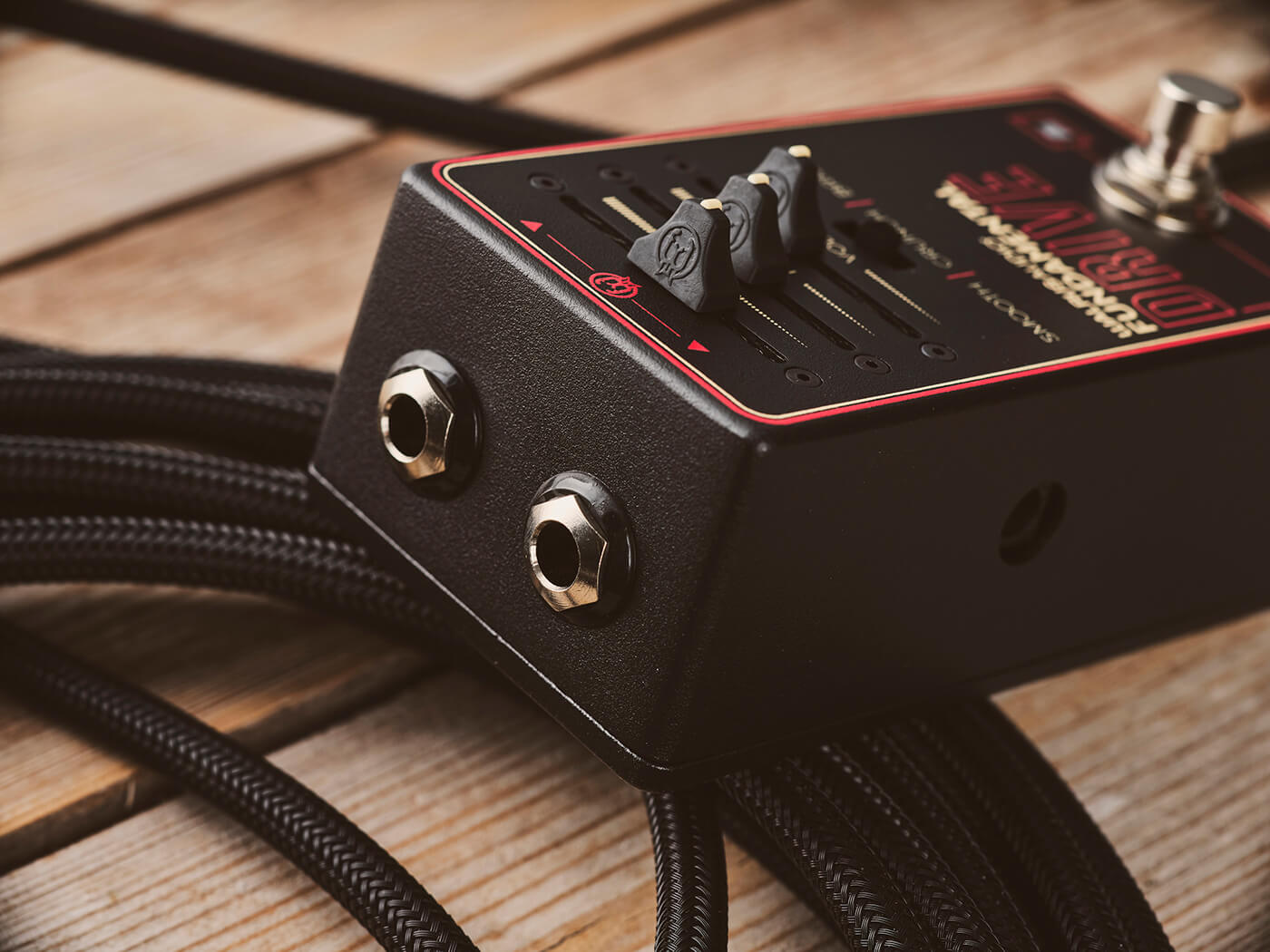
Before we go on, Walrus might be able to design, build and launch eight completely different pedals at the same time, but we most certainly cannot review all eight in one thousand words, especially when we’ve already wasted a quarter of that making Peep Show jokes.
With that in mind, today we’ll be taking a look at two dirt pedals, the Drive and Fuzz, plus the Delay and, for a laugh, the Phaser. In addition, we’ll be checking out the Distortion, Chorus, Reverb and Tremolo as separate reviews a little down the line.
Before we get into the details of each pedal, let’s talk about what the entire range has in common. They’re all situated in identical 11 x 6 x 6cm steel enclosures that are powder-coated in a very fetching matte black (they’re probably about a centimetre shorter and half a centimetre thinner than your regular Walrus compact chassis, fact fans).
All pedals have the same basic layout with two top-mounted jacks, a side-mounted standard 9V power socket (there’s no battery option), a single footswitch on top (paired with a square white status LED) a three-way mode switch and three sliders instead of boring old potentiometers to control the three tweakable parameters of each pedal.
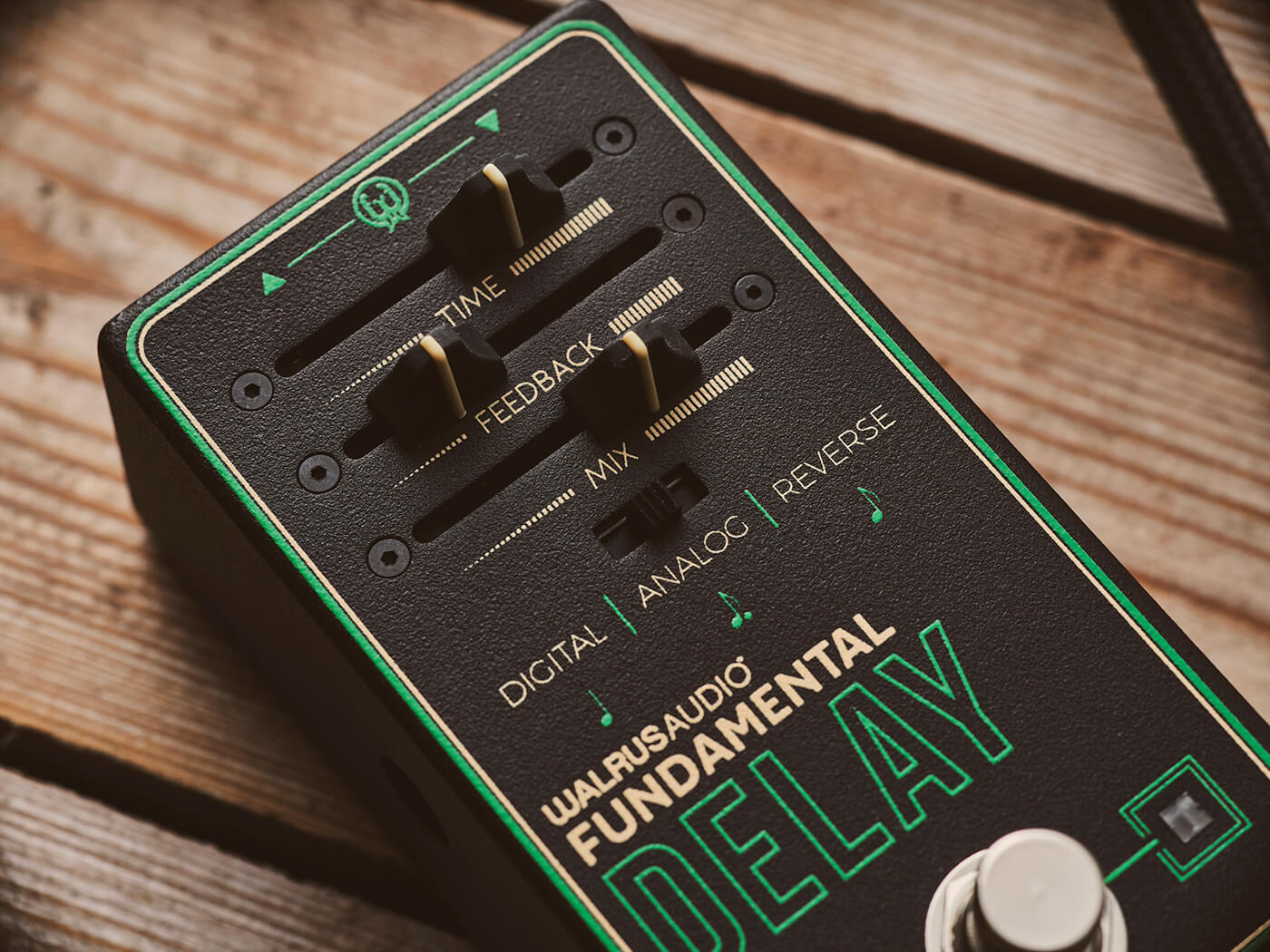
Now, plenty of people online who’ve never even held one of these pedals in their hands have been complaining about the supposed fragility of the sliders, claiming they’re style over substance. In the flesh though, the sliders are very impressive – they feel rugged and solid, with a wonderfully smooth level of resistance to the travel, plus an indent that clicks satisfyingly into place halfway along its travel. In short, they’re fine, and even if they’re somehow not, Walrus has confirmed that they’ll fix any sliders that break.
The livery on each pedal is certainly basic compared to the eye-catching artwork of the regular Walrus line, but we like it – there’s a 60s simplicity to the simple screenprint, and we like the way each pedal can easily be identified by colour at a distance.
Right, enough preamble, let’s get down to the fundamentals.
Walrus Audio Fundamental Drive Review
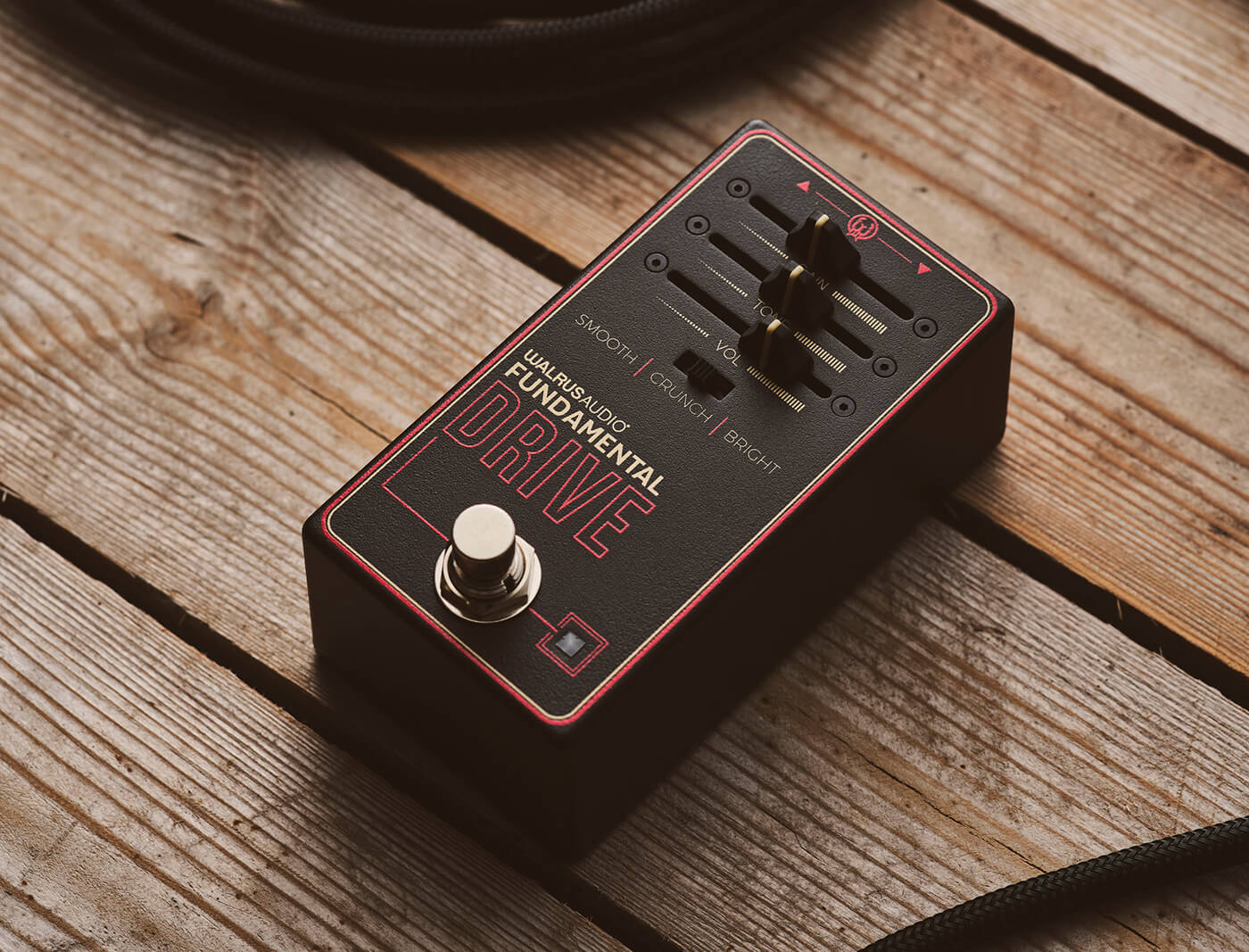
Walrus has always been a company that has forged its own path, and not really got trapped in the cycle of endlessly iterating on the same hoary old circuits everyone else has been using for years.
It’s fitting but refreshing then that when we pull the Drive out of its box it isn’t a) green and b) not obviously trying to be something else. Gain, tone and volume are the three rather inevitable parameters we can tweak here, but that’s no bad thing – remember these are pedals designed for beginners and the last thing we need is to confuse anyone by giving standardised parameters wacky names for the sake of it.
Nobody would really have batted an eyelid if these pedals were just one voice given the crazy low price tag (under a hundred bucks on both sides of the Atlantic for this one), but each Fundamental pedal also includes a mode switch that activates three distinct voices.
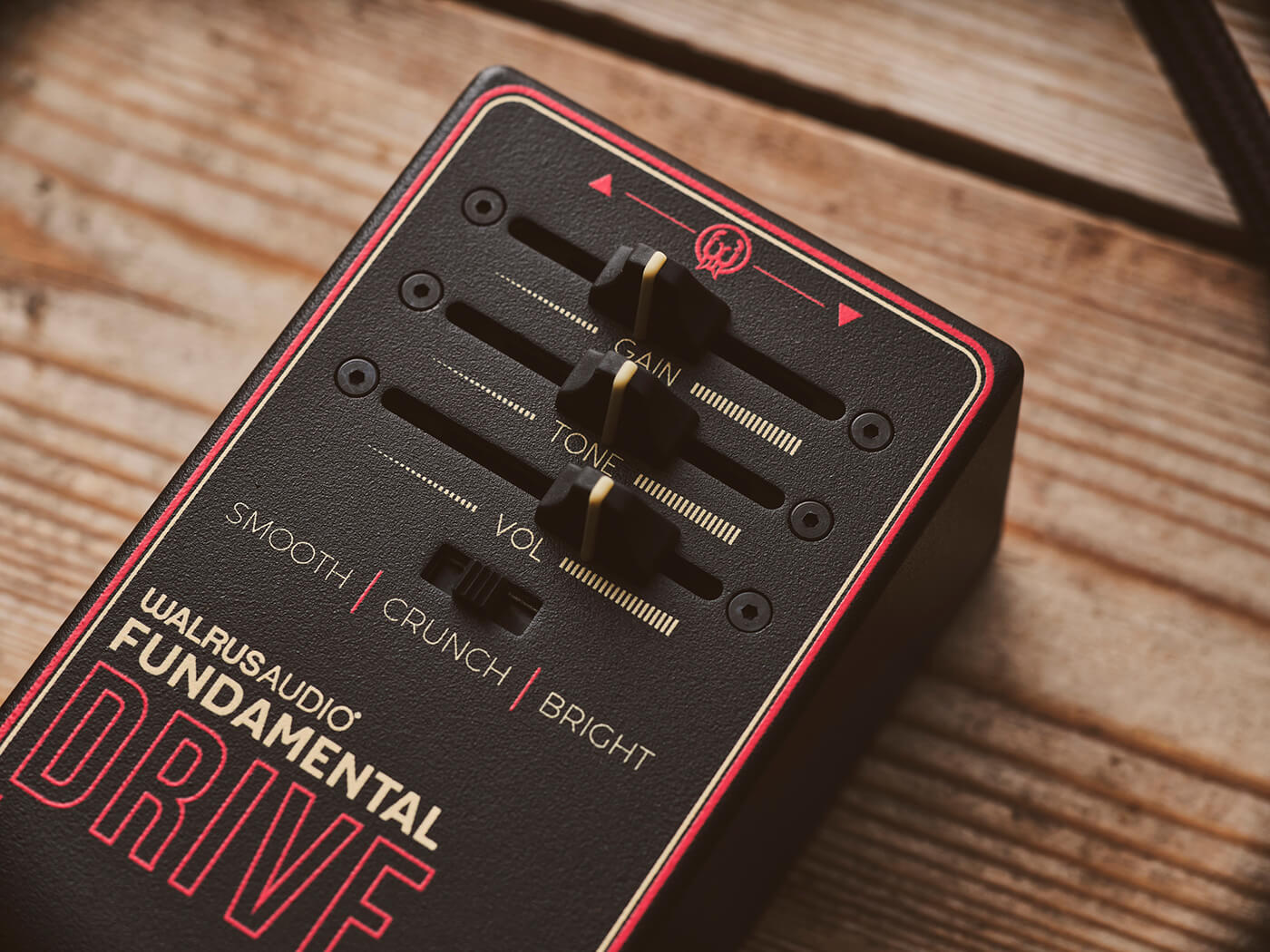
On the Drive we have Smooth, Crunch and Bright – all of which are based around silicon clipping diodes with varying levels of clip. Smooth is, as you would suspect, a smooth, chewy overdrive, Crunch adds a bit of bite and rasp to proceedings as the clipping gets harder, while Bright cuts the low-end before the clipping stage to give you a punchier sound that might work better in a full-band scenario.
Despite this being merely an overdrive there’s plenty of gain on tap, even on smooth mode – with a mildly cooking amp you’ll find plenty of dirt and sustain on hand for soloing and just pure rockin’ out.
We like that the Drive isn’t trying to be a Tube Screamer, an SD-1 or anything else in particular – if it’s closest to anything it’s probably a Marshall Bluesbreaker, but even then it feels like its own thing. No easy feat in the modern world of drive pedals.
Get today’s deals on the Walrus Audio Fundamental Drive
Walrus Audio Fundamental Fuzz Review
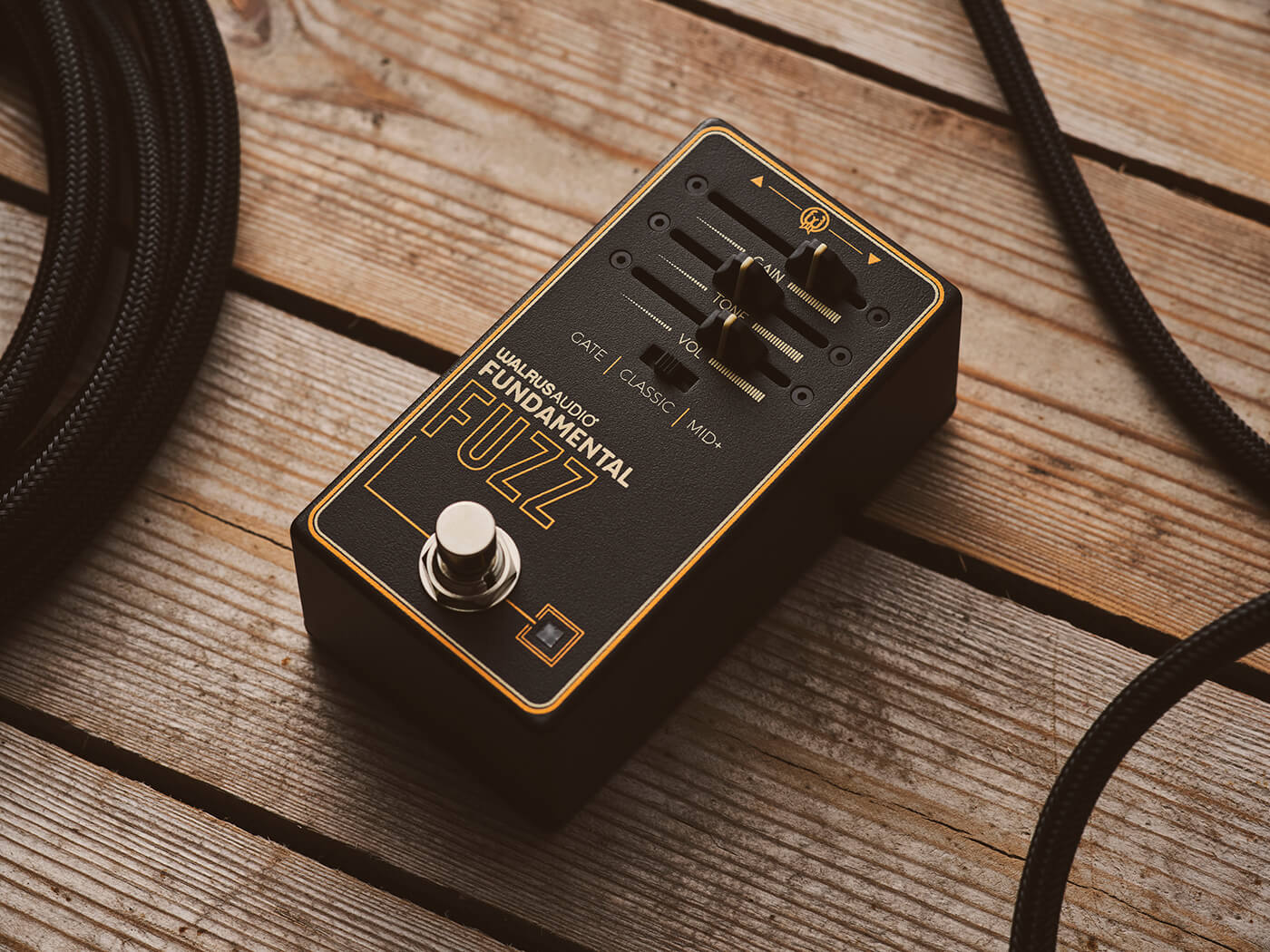
If you’ve never owned a fuzz pedal, stop what you’re doing and go and buy the Walrus Fundamental Fuzz, because it might be the perfect entry into everything that makes the effect fun in one pint-sized package.
The three modes here are, again, key, with each one altering the tone stack and the bias voltage – we get a pretty standard vintage-style fuzz on the middle classic mode, while the mid+ mode gives you classic rock sustain for days by adding the mid-frequencies back to the classic rock sound.
The gate mode is the real surprise however – with its low bias voltage, this is your one-stop shop for glitchy, spitty, dying battery scuzz that has helped make Jack White one of the most exciting and inventive guitar players of the last few decades.
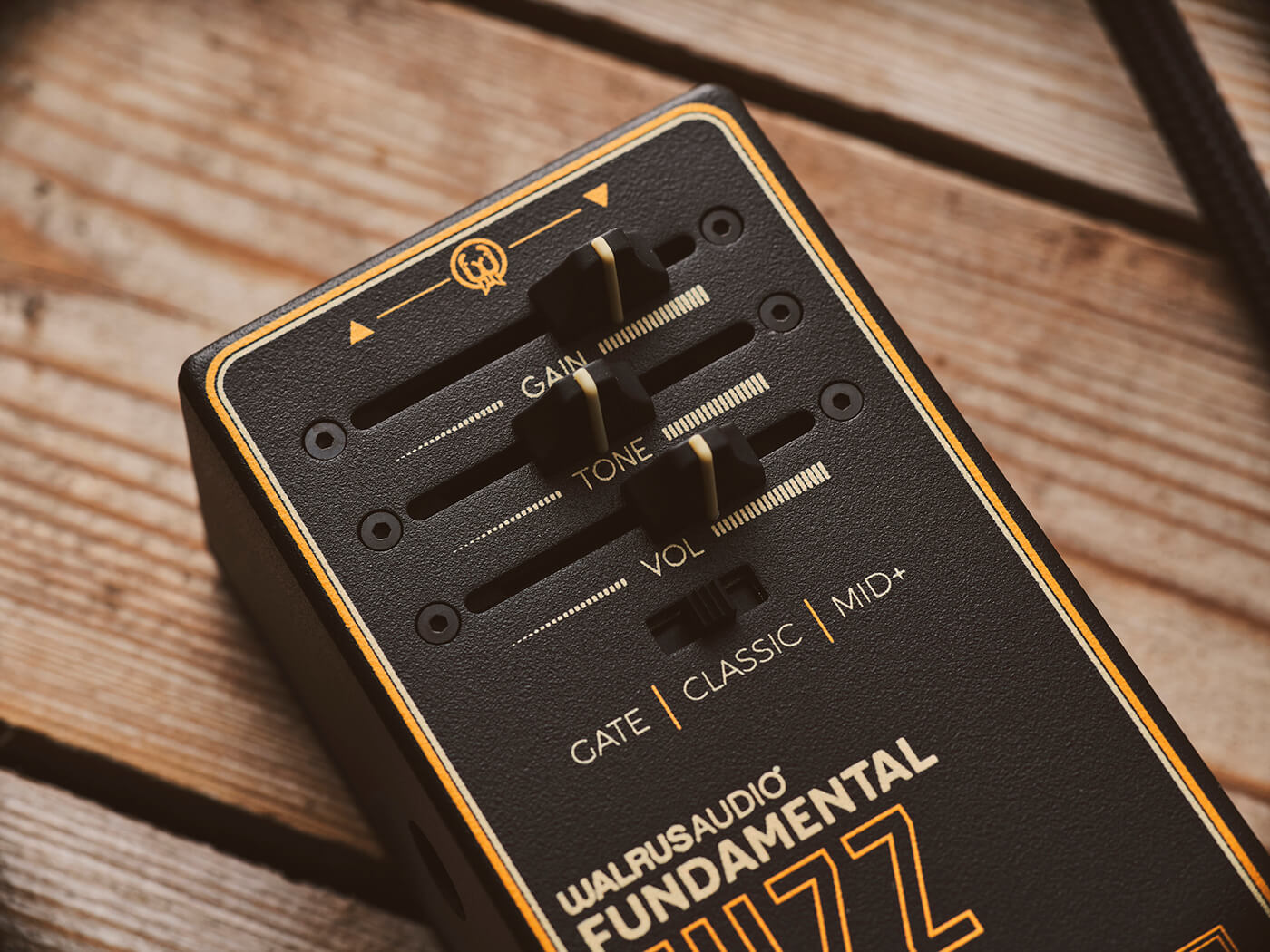
We never expected such a gnarly and specific sound to be available in a pedal at this price and with the gain up and the tone down, you can Ball & Biscuit your nights away in glorious glitchy bliss.
Oh and as if that wasn’t enough, both this and the drive offer true bypass switching for all you tone hounds out there.
Get today’s deals on the Walrus Audio Fundamental Fuzz
Walrus Audio Fundamental Delay Review
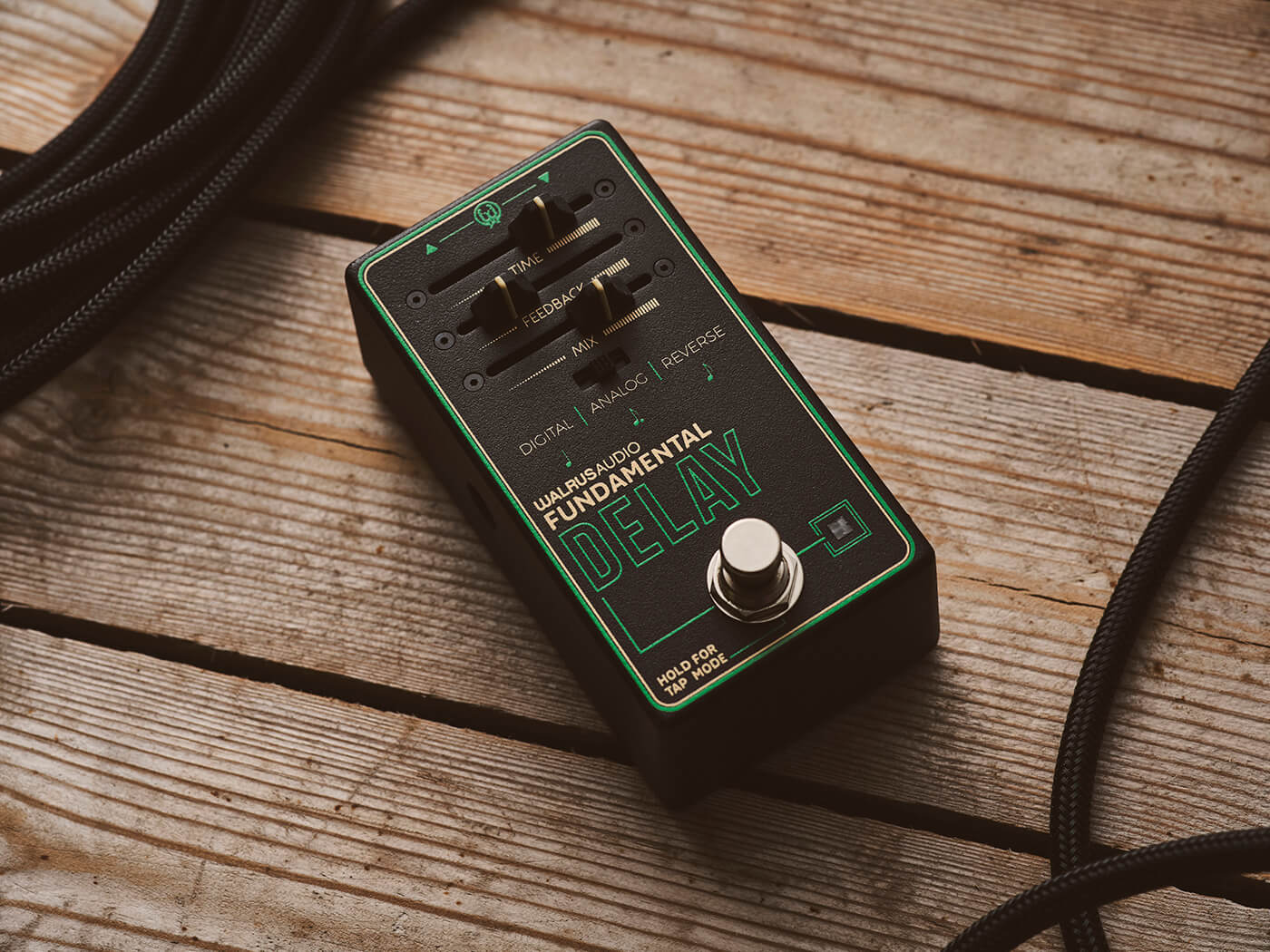
At this point you might be tempted to assume that there’s no topping the Fuzz for Fundamentally surprising brilliance, but not so fast my friend – the Delay pedal is here and it’s going to blow your socks off.
Here the three modes are digital, analogue and reverse, and each one is an enjoyably authentic take on the form – whether that’s the crystalline repeats of the digital mode, the emulated lo-fi degradation of the analog moder or indeed the woozy weirdness of reverse (another wonderful surprise at this price point).
What’s even more impressive is that, unique among the Fundamental pedals, the Delay also has tap tempo, which is activated by holding the footswitch down when it’s engaged and indicated by a flashing of the LED.
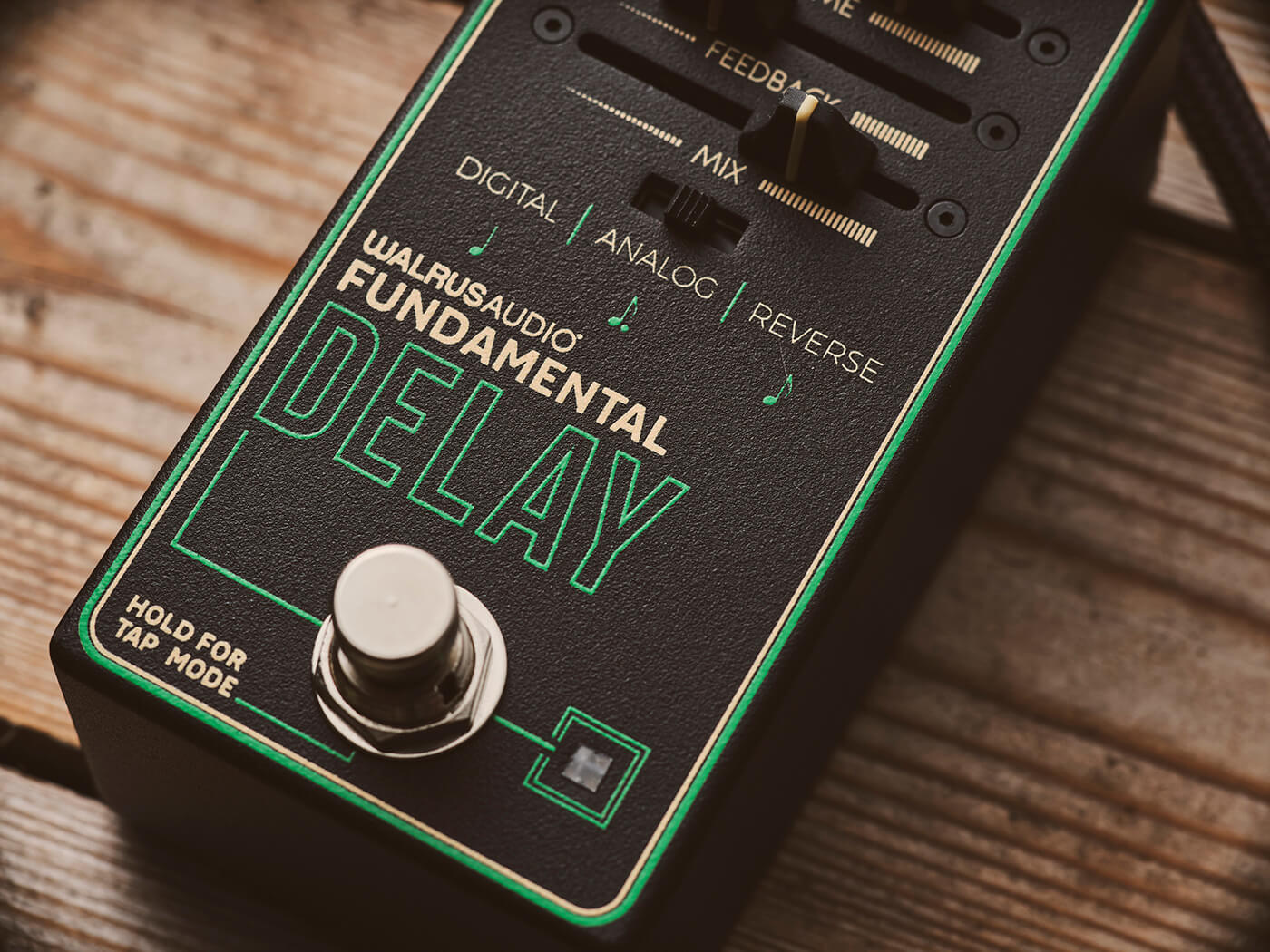
Yes, this is pretty standard stuff for most high-end boutique pedals, and is pretty common amongst Asian-made megabrands, but we say again – this pedal is US-made and costs $129. Insane.
Get today’s deals on the Walrus Audio Fundamental Delay
Walrus Audio Fundamental Phaser Review
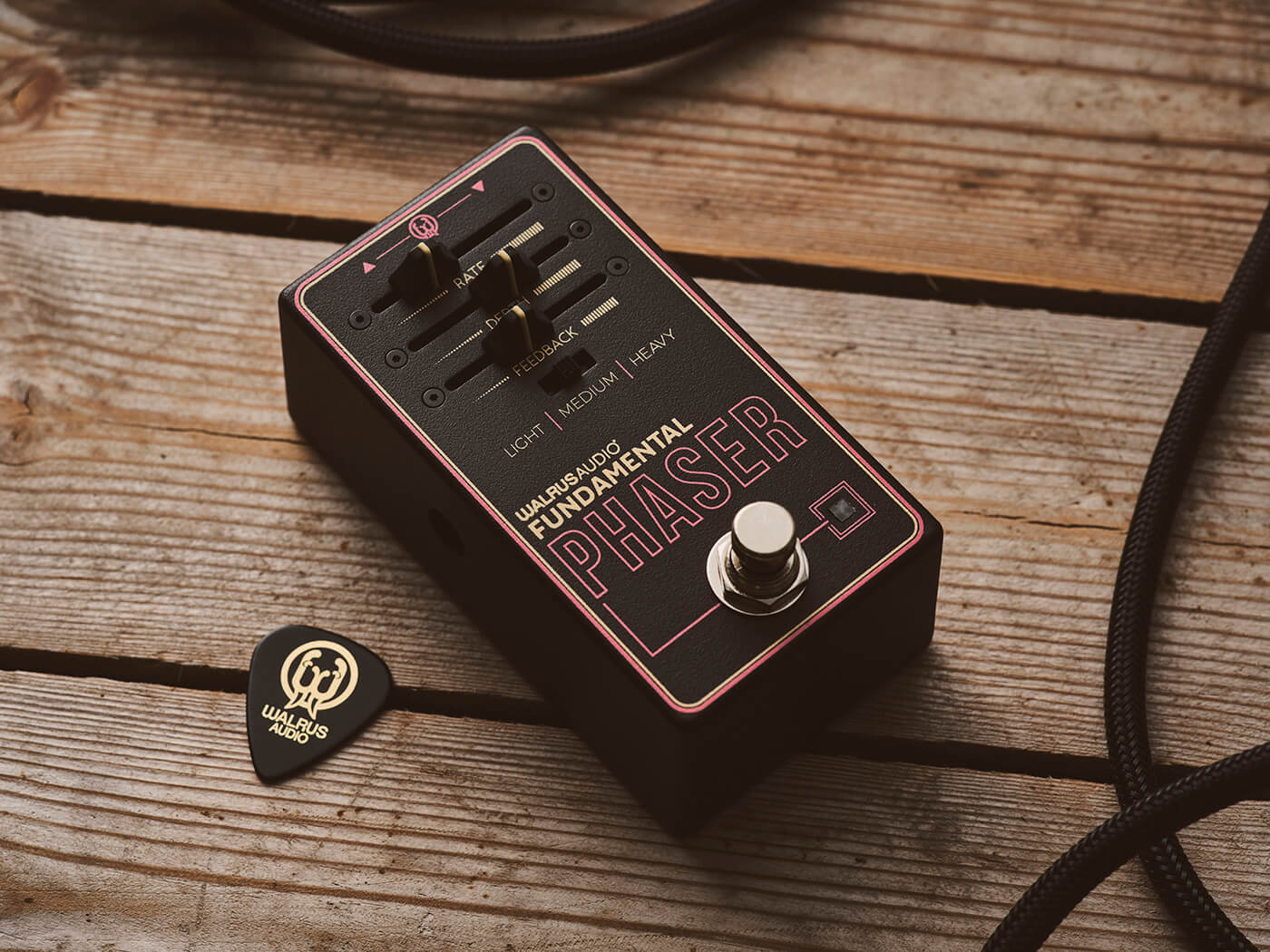
After the riotous fun of the dirt pedals and delay, it’s perhaps a little unfair to come to the most esoteric effect last and be slightly underwhelmed, but the Phaser is perhaps the least impressive of the bunch.
It’s a perfectly decent digital emulation of a phasing effect, with three modes of intensity taking you from a very gentle modulation all the way through to airplane takeoff levels of 80s-style excess.
You get two controls to impact the LFO – rate and depth (controlling the wave shape) plus a feedback slider that determines how much of the signal goes back into the feedback loop.
While the temptation is always to go full Van Halen whenever you get to grips with a phaser, we actually find that the light mode, which adds a very slight hint of wobble to your sound is actually one of the most usable and addictive sounds here, especially with clean jazzy chords.
Get today’s deals on the Walrus Audio Fundamental Phaser
Walrus Audio Fundamental Conclusions
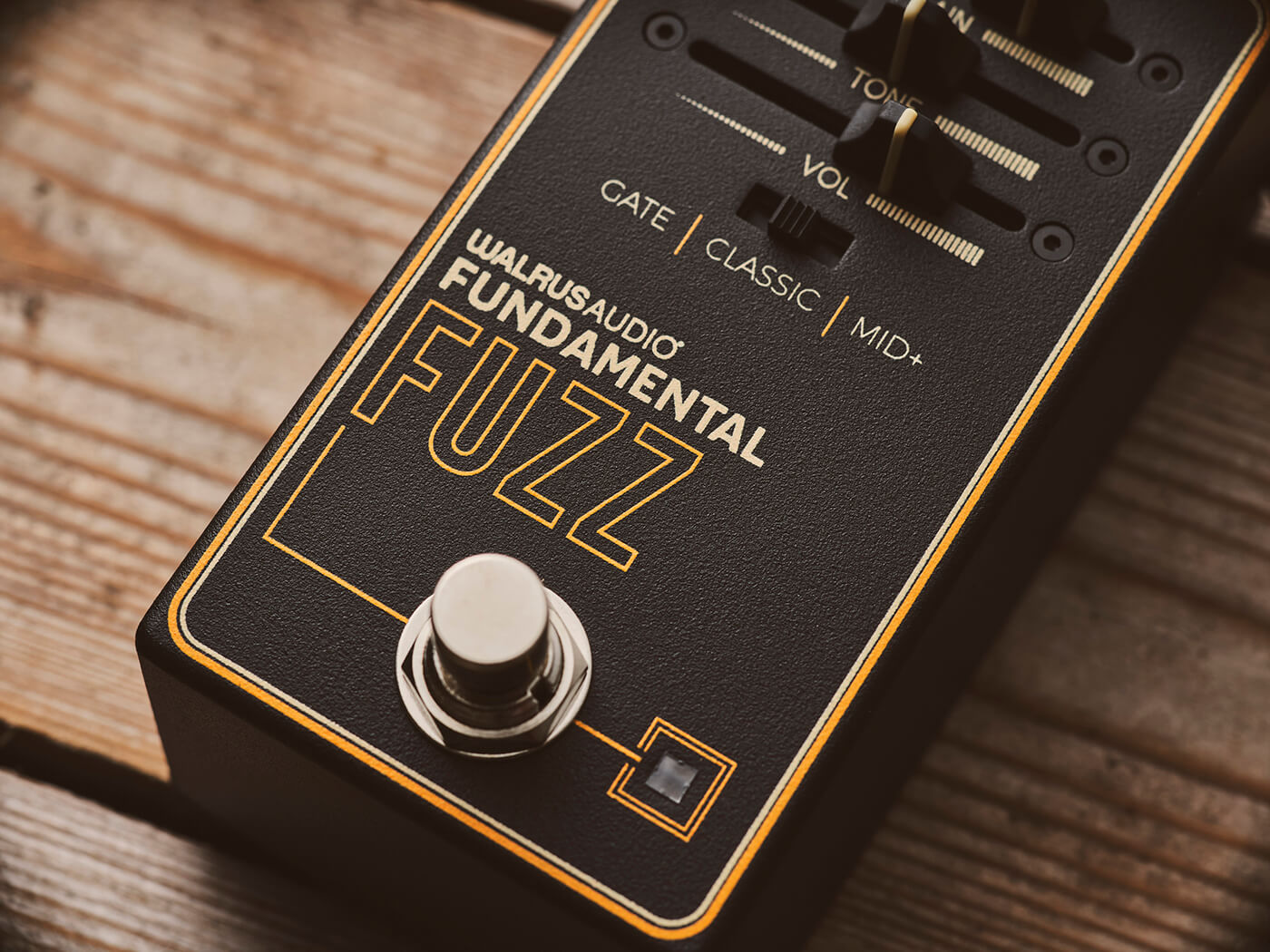
Sometimes you have to take your hat off to a brand and accept that they’ve absolutely nailed it, and with these first four pedals from the Fundamental range, there’s almost nothing to find fault with.
Yes, the side-mounted power socket rather ruins the benefit of having top-mounted jacks, but these are still very compact and board-friendly pedals that offer a huge amount of sonic options for an unbelievably affordable price.
But these are absolutely not beginner-only pedals, despite their price point – they all sound genuinely great and bar the slightly generic Phaser perhaps, could all happily sit on a pro pedalboard not just in terms of build, but in terms of their sounds.
In the end, it’s an apt name – like base elements, these pedals might not seem that interesting from a distance, but they’re the fundamental building blocks of guitar tone that none of us would want to be without.
KEY FEATURES
- PRICE: £95/$99 (Drive, Fuzz); £125/$129 (Phaser, Delay)
- DESCRIPTION: Drive, fuzz, delay and phaser pedals, made in the USA
- DRIVE CONTROLS: Gain, Tone, Volume, Smooth/Crunch/Bright switch, Bypass footswitch
- FUZZ CONTROLS: Gain, Tone, Volume, Gate/Classic/Mid+ switch, Bypass footswitch
- PHASER CONTROLS: Rate, Depth, Feedback, Light/Medium/Heavy switch, Bypass footswitch
- DELAY CONTROLS: Time, Feedback, Mix, Digital/Analog/ Reverse switch, Bypass footswitch
- FEATURES: 9V DC power, True bypass (Drive, Fuzz), Buffered bypass (Phaser, Delay), tap tempo (Delay)
- DIMENSIONS: 60 (w) x 116 (d) x 56mm (h)
- CONTACT: Walrus Audio, Face Distribution
